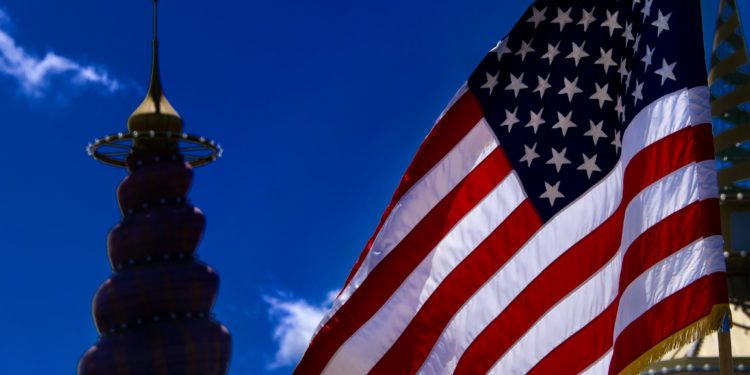By Coalition of International Criminal Court
The Hague/ New York— The threat by the U.S. government to impose more sanctions against Judges and Prosecutors working for the International Criminal Court (ICC) sets a dangerous and highly damaging precedent, said the Coalition of the International Criminal Court (CICC) – a global network of more than 2,500 civil society organizations in 150 countries, today.
On 9 October, the U.S. Secretary of State, Michael Pompeo announced that the U.S. would impose visa sanctions on “all ICC officials…directly responsible for…ICC investigation[s] of U.S. personnel, or of allied personnel without our allies’ consent.”
Civil society organizations that are members of the CICC have asked the U.S. government to recant its ICC sanctions policy.
“It is absurd to threaten ICC officials, such as Judges, Prosecutors and the Registrar with sanctions for doing nothing more than follow the law and for discharging their duties impartially and conscientiously,” said Dr Tawanda Hondora, the Executive Director of the CICC.
In his statement on October 9, Mr. Pompeo stated that the U.S. respects the decision taken by States that joined the ICC and expects the same countries to respect the decision taken by the US not to join the Rome Statute.
“How can the U.S. demand respect for its decisions while simultaneously disrespecting the 122 countries that have chosen to join the ICC, including Afghanistan?” asked Alison Smith, the International Justice Director for No Peace Without Justice.
In April 2019 the U.S. imposed travel sanctions against Fatou Bensouda, the ICC Prosecutor, following the application by her office for permission to open an investigation into alleged war crimes and crimes against humanity committed in Afghanistan.
Hadi Marifat, Executive Director, Afghanistan Human Rights & Democracy Organization also stated that “any steps that the US is going to take to avoid the ICC’s consideration of the appeal filed by the Office of the Prosecutor in the Afghanistan case is going to be extra-legal and should be rejected by all countries and people who believe in the rule of law.”
The ICC, which was established following the entry into force of the Rome Statute in 2002, enables the investigation by States Parties and the Office of the Prosecutor of those suspected of committing atrocity crimes.
“A policy of constructive engagement with the Court would better serve U.S. interests and be more in line with the policy of major European and other allies that support the Court,” stated Jennifer Trahan, a Professor at NYU’s Center for Global Affairs.
“The U.S. policy towards the ICC makes a mockery of the “never again” commitments made by most countries, including the U.S. following the genocide in Rwanda twenty-five years ago,” said Dr Hondora.
“We appeal to the U.S. Senate and Congress to help reverse this policy, which serves no purpose other than to undermine the ICC through the pernicious targeting of those who work for the institution,” continued Dr Hondora. The U.S.’s policy towards the ICC will likely shield its so-called allies from scrutiny contributing to a culture of unrestrained impunity in an era where mass atrocities, including against minorities, women and children continue in places such as Syria, Yemen and Mali. “To avoid the emergence of a damaging new norm and practice, States Parties to the Rome Statute of the International Criminal Court should stand as one and resolutely demand that the U.S. reverse its ICC sanctions policy,” continued Dr Hondora.
The U.S.’s policy towards the ICC will likely shield its so-called allies from scrutiny contributing to a culture of unrestrained impunity in an era where mass atrocities, including against minorities, women and children continue in places such as Syria, Yemen and Mali.
“To avoid the emergence of a damaging new norm and practice, States Parties to the Rome Statute of the International Criminal Court should stand as one and resolutely demand that the U.S. reverse its ICC sanctions policy,” continued Dr Hondora.
Background
On 10 September 2018 the U.S. announced that it would impose sanctions against the International Criminal Court over an investigation on alleged crimes committed in Afghanistan.
On 5 April 2019 Michael Pompeo announced that the U.S. has imposed visa restrictions on the ICC Prosecutor, Ms. Fatou Bensouda
The ICC Office of the Prosecutor (OTP) has been undertaking a preliminary examination into the situation in Afghanistan at least since 2007.
On 20 November 2017 the OTP applied for permission to open an investigation into the situation in Afghanistan.
On 12 April 2019 the ICC Pre Trial Chamber II (PTC II) rejected the OTP’s application declaring that “an investigation into the situation in Afghanistan at this stage would not serve the interests of justice.”
On 17 September 2019 the PTC II partially granted the OTP’s application for leave to appeal against the decision refusing its request for permission to open an investigation into the situation in Afghanistan.
On 30 September 2019 the ICC Office of the Prosecutor filed its Appeal Brief against the 12 April 2019 PTC decision rejecting the OTP’s request for authorization to open an investigation.
This was first published on the Coalition of the International Criminal Court.







